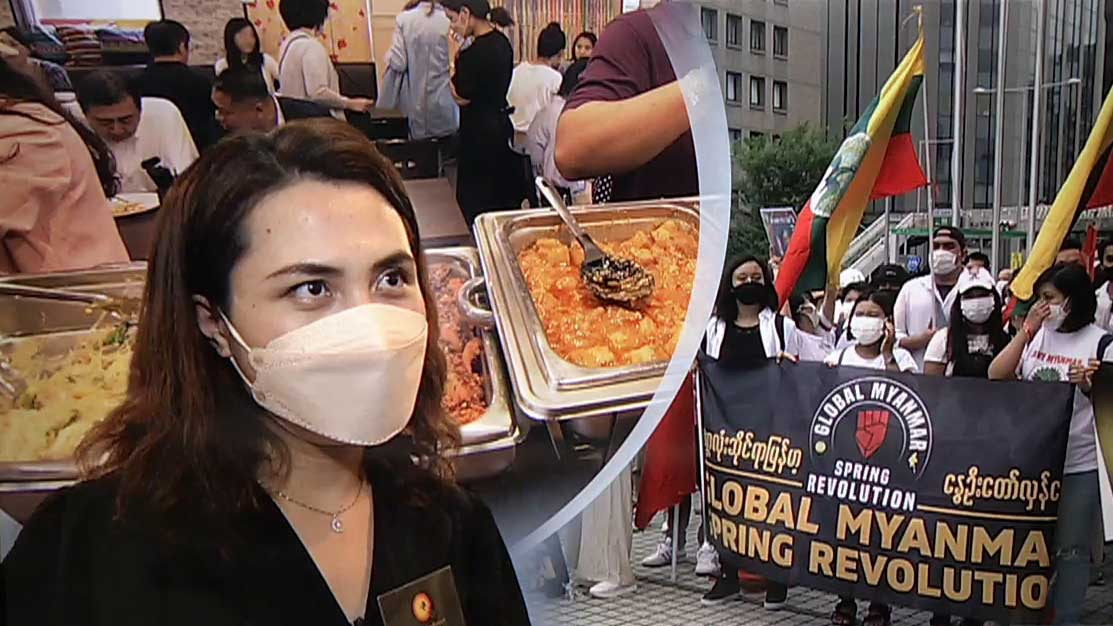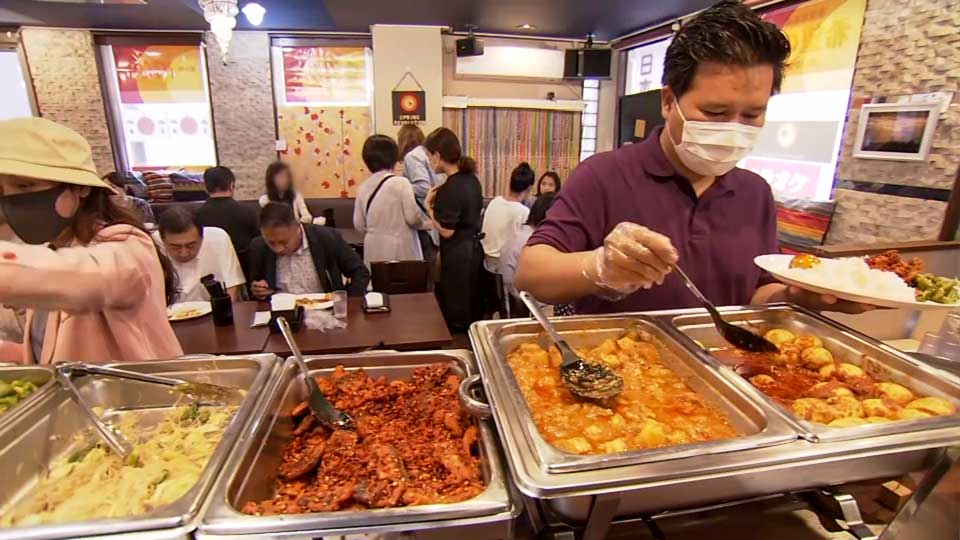
Spring Revolution Restaurant in Tokyo's Ikebukuro district specializes in Myanmar comfort food. It caters to a wide customer base that includes Japanese office workers looking for something different at lunch and people from Myanmar itching for a taste of home.

But what separates the place from the other Myanmar restaurants around Tokyo is its clear commitment to a cause: End the crisis in the country. This is evident from its name, which it takes from the anti-coup movement back home.
Lae Lae Lwin opened the restaurant in June. She came to Japan eight years ago to attend nursing school and now works at a hospital in the capital. She operates Spring Revolution Restaurant with friends from Myanmar, working shifts on top of her regular job.
Nobody at the restaurant is paid, except for the chefs. Everything they make—along with any donations—is sent back to Myanmar to help those who have lost income by protesting. So far, the restaurant has raised over $27,000 for the cause.
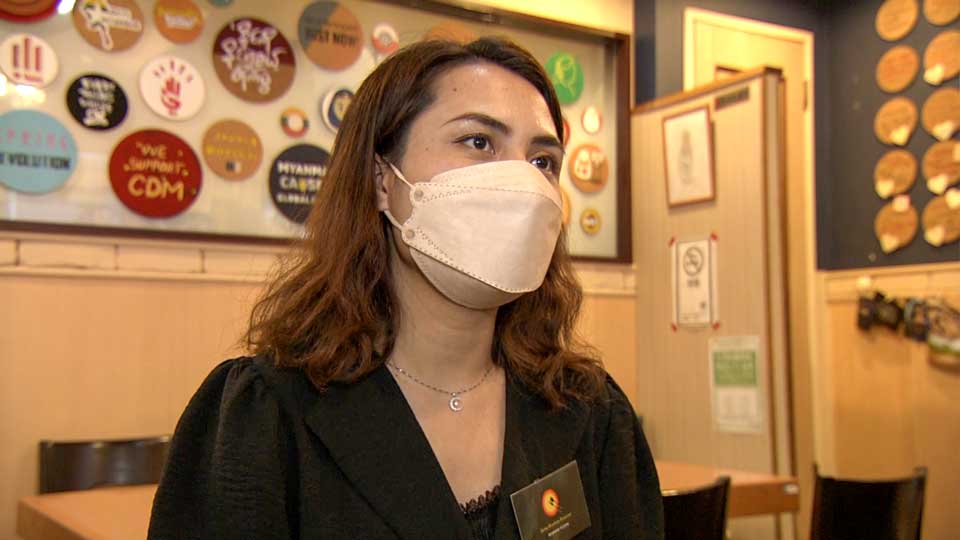
"I thought Myanmar cuisine could definitely be a good start to get people interested in the country," Lae Lae Lwin says. "We are trying to serve not uptight restaurant style cuisine, but home cooking and ethnic minority specialties to attract more people to Myanmar."
The situation in Myanmar is dire. In September, the National Unity Government of ousted pro-democracy lawmakers who support former leader Aung San Suu Kyi formally declared a "defensive war" against the military. Regional experts are worried this could lead to a full-blown civil war.
Lae Lae Lwin believes many people in Japan don't know what is going on in Myanmar, and that it is her responsibility to raise awareness. She says some people she's spoken to at the restaurant can't even point to Myanmar on a map.
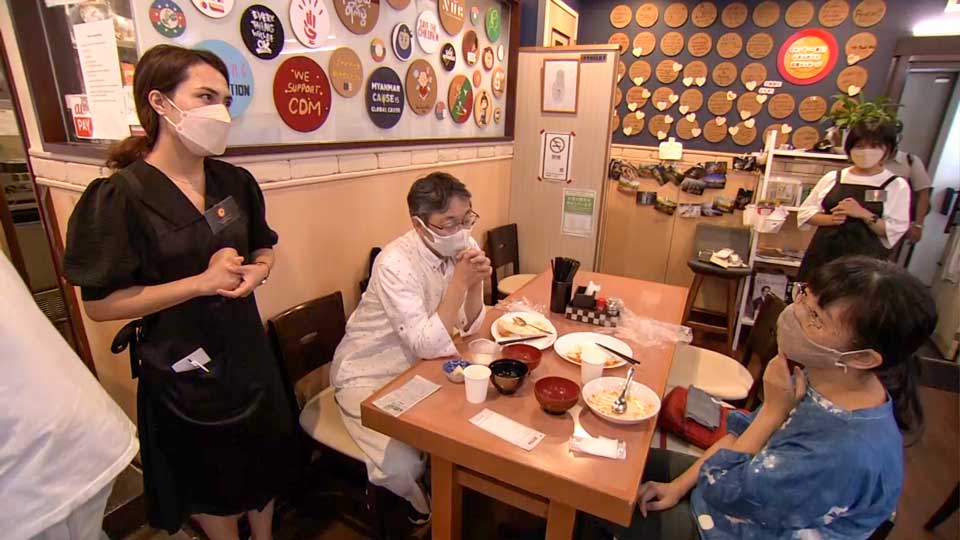
One day, Lae Lae Lwin meets a Japanese woman who says she has been interested in Myanmar since hearing about the coup. She tells the customer about her perspective as someone from the country.
"Youngsters in their teens and twenties are being killed," Lae Lae Lwin says. "It makes me really worried about Myanmar's future. That's why those of us living overseas must persevere."
The customer says she has noticed fewer reports about Myanmar in the news, and that this could lead to people forgetting about what is going on.
"If we lose interest, the vulnerable will continue to suffer," she says. "I think we need to stay interested in what's happening."
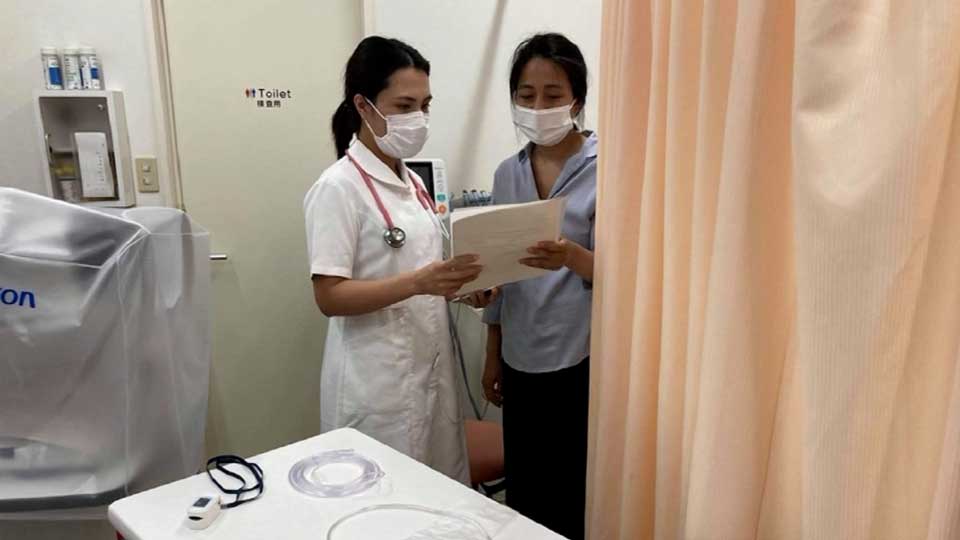
But even for Lae Lae Lwin, it's difficult to remain constantly focused on Myanmar. As a nurse, she has been on the front lines of the battle against the coronavirus. Balancing the demands of her job and work at the restaurant has been difficult and Lae Lae Lwin has gotten little sleep. Since the coup, she has collapsed three times from exhaustion and was taken to the emergency room on each occasion.
Despite this, she maintains her commitment to the pro-democracy cause, and even takes part in activities outside the restaurant. Recently, she participated in an online seminar about the current situation in Myanmar. To an audience of about 40 people from across Japan, Lae Lae Lwin spoke about how Myanmar's medical system has collapsed and people were dying without treatment. Later in the event, she shared some difficult personal news she had only learned the night before: Her whole family had been infected with the coronavirus. But she said she was taking strength from words from her father: "Don't worry, dear. How can I die from the virus when my daughter has been helping so many patients in Japan?"
Her parents are encouraging her to continue fighting for her beliefs from Japan. Nonetheless, Lae Lae Lwin feels a deep sense of grief at not being able to go home and help them.
She finished her address with some advice for the participants: "Sleeping when you are sleepy, going out to play when you want to, going to a convenience store in the middle of the night, all of these are normal in Japan. But I want you to understand that you can only do them because your country is safe."
Afterward, audience members said Lae Lae Lwin had awoken their interest in Myanmar.
"What's happening in Myanmar is not somebody else's problem but also ours," said Sakata Natsuya, a college student. "I've come to think there's something we can do in Japan to contribute, and without such cooperation from the world, it cannot be realized."
Watch Video 03:43
Lae Lae Lwin and her friends from Myanmar are also taking to the streets. She has created a network of about 30 youth groups throughout Japan and connected them with other organizations around the world.
Last month, they held simultaneous demonstrations as part of "a global Myanmar spring revolution day." Lae Lae Lwin's group in Tokyo chanted and raised the three-finger salute in opposition to the military. They called for international aid and the release of Aung San Suu Kyi and other leaders.
Some Japanese students also took part, including Ishikawa Wataru, who majors in the Burmese language at a university in Tokyo. He had plans to study in Myanmar before the coup and now wants to do what he can in Japan to support the protest movement.
"What I can do may not seem like much, but I believe I'm not powerless and I can be of some help," he said. "So I will continue doing it with all my might and determination to help the people of Myanmar."
Meanwhile, Lae Lae Lwin remains resolute. She says this is because what she does in Japan pales in comparison to the risks the protesters take back home.
"Young people in Myanmar are fighting, really risking their lives, regardless of their own futures," she says. "They are suffering much more than I am. It gives me strength to do more."
The future of Myanmar remains up in the air. But Lae Lae Lwin is committed to the fight for freedom. If that means serving food and talking to customers in a small restaurant thousands of miles from home, she is willing to play her part.
